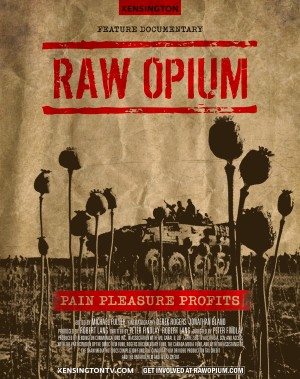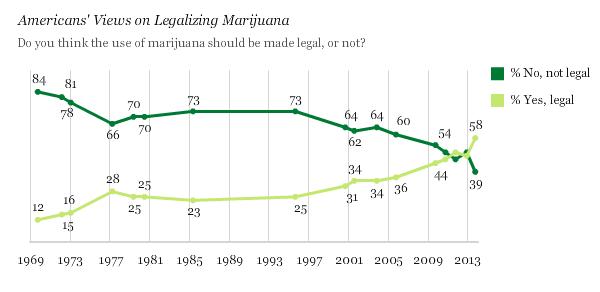On Wednesday 19th February GDPO hosted a film screening of ‘Raw Opium: Pain, Pleasure, Profits’ followed by a panel discussion ‘The Dilemmas of Drug Policy: Global to local’.
 The film itself follows the trade in opium/heroin from a poppy growing region of India, over the Tajikistan-Afghanistan border and on to Vancouver’s supervised injection site – Insite – to Portugal’s drug dissuasion committees. There are largely insightful interviews with poppy growers in Arunachal Pradesh, India, a UNDOC enforcement officer on the Tajik-Afghan border, a US Drug Enforcement Administration (DEA) officer, the former Indian Narcotics Commissioner Romesh Bhattacharji (and GDPO Technical Advisor) as well as members of the Insite team, Gabor Mate (a doctor who works in Vancouver with problematic drug users), and Portuguese street workers who offer support and food to drug users on the streets. It also talks to some of those that use the supervised injection site in Vancouver about why they started using drugs and what Insite means to them. The film is a powerful exploration of the local and global impacts of the trade.
The film itself follows the trade in opium/heroin from a poppy growing region of India, over the Tajikistan-Afghanistan border and on to Vancouver’s supervised injection site – Insite – to Portugal’s drug dissuasion committees. There are largely insightful interviews with poppy growers in Arunachal Pradesh, India, a UNDOC enforcement officer on the Tajik-Afghan border, a US Drug Enforcement Administration (DEA) officer, the former Indian Narcotics Commissioner Romesh Bhattacharji (and GDPO Technical Advisor) as well as members of the Insite team, Gabor Mate (a doctor who works in Vancouver with problematic drug users), and Portuguese street workers who offer support and food to drug users on the streets. It also talks to some of those that use the supervised injection site in Vancouver about why they started using drugs and what Insite means to them. The film is a powerful exploration of the local and global impacts of the trade.
Building upon many of the issues raised within the film, the accompanying panel discussion explored global nature of the illicit market in heroin and other controlled drugs as an area of public policy concern.
Panel members:
Julia Buxton (Chair) – GDPO Senior Research Officer and Professor of Comparative Politics, School of Public Policy at the Central European University, Budapest
Baroness Molly Meacher – Chair, All Party Parliamentary Group (APPG) for Drug Policy Reform
Ifor Glyn – Chief Executive, SANDS Cymru
Mike Trace – Chief Executive, The Rehabilitation for Addicted Prisoners Trust (RAPt), Chair, International Drug Policy Consortium (IDPC) steering group, former Deputy UK Anti-Drug Coordinator
David Bewley-Taylor – GDPO Director and Professor of International Relations and Public Policy, Swansea University
Kicking off the discussion, Professor Bewley-Taylor emphasised the global nature of the heroin/opium trade. In this regard, he noted that in 2012-13 there had been a 36% rise in opium production in Afghanistan and that poppies are now being grown in provinces that had previously been designated ‘poppy-free. He also pointed out that after full ‘Transition’ at the end of 2014, the security situation is likely to worsen with a consequence being that poppy production will continue to increase. Despite a range of complexities and uncertainties concerning the opium market, any increase in production in Afghanistan may well result in a decrease in price and an increase in purity of heroin on the streets of the UK.
This may have a direct impact upon the heroin markets in Swansea. On a local level, it was noted by Ifor Glyn that the city has a growing problem with heroin use. Twenty years ago there was very little heroin use in Swansea and the surrounding area. Today it is one of the main drugs used by clients at SANDS CYMRU. This seems to be part of a broader principality-wide situation, with an estimated 17,000 problematic drug users in Wales. In response, since devolution, the Welsh Assembly Government has become more innovative regarding drug policy and has invested £32 million into the issue area. The Advisory Panel on Substance Misuse – the Welsh version of the UK’s Advisory Council on the Misuse of Drugs (ACMD) – has recognised that there is a need for drug consumption rooms like the Insite facility shown in the film. They have also looked into heroin prescription similar to the model used in Switzerland. On this point, Baroness Meacher noted that the Swiss model provides a wide range of support services from heroin maintenance to counselling and housing support. She also pointed out that it is estimated that for every 1 Swiss Franc (CHF) spent on this programme, the tax payer is saved CHF2.
Whilst the Welsh government has not instituted drug consumption rooms or heroin maintenance as yet, they are considering new approaches to drug policy. Public Health Wales has set up a government-funded drug testing service – the Wedinos project – where people can have their ‘legal highs’ (or Novel Psychoactive Substances) tested to find out what substances they contain. It aims to give individual users rapid and accurate information to reduce harms associated with drug use.
On national level issues, Baroness Meacher highlighted that UK Deputy Prime Minister and leader of the Liberal Democrats, Nick Clegg, has ‘come out’ in favour of a review of the UK Misuse of Drugs Act but that Labour and the Conservatives are still resistant to change. Panel members concurred that politicians often do not engage with drug policy reform because there is a fear that being supportive of decriminalisation or legalisation can be politically damaging. For example, at the 2002 Home Affairs Select Committee (of which David Cameron was a member) it was agreed that it was necessary to review the MDA. Cameron supported this but when he became Prime Minister, he jettisoned this proposal.
In response to a question from the audience asking why drug policy is not simply left to the ‘experts’, Baroness Meacher noted that in the UK policy is driven by the 1971 Misuse of Drugs Act (MDA) and therefore the only people who can change this are politicians. Scientists, such as members of the ACMD, do their best but are often ignored. A recent example of this was UK Home Secretary Theresa May’s announcement that the drug khat would become a banned substance against the ACMD’s advice. You can read more about the ban on the khat trade in GDPO’s Situation Analysis – The UK khat ban: Likely adverse consequences.
On the international level, it seems that rhetorically at least, there has been a shift in emphasis from criminalisation to a more public health orientated approach. There has been a recognition in much of the world that punishment shouldn’t be a tool of demand reduction. The UN is holding a special session (UNGASS) on drug policy in 2016 and, as outlined by Mike Trace, diplomats are currently trying to agree on a Joint Ministerial Statement (JMS) that will set the scene for the UNGASS, as well as recording member states’ views of progress towards the goals set at the UN Political Declaration on drugs in 2009. It is becoming clear, however, that there is little consensus around the issue. According to Mike Trace states involved in the JMS process can be broadly divided into three camps:
- Reformers – e.g. Latin American states such as Mexico, Colombia, Guatemala
- Re-balancers – e.g. European nations who agree that drug policy should be health-based rather than criminal justice-based.
- Defenders – usually authoritarian countries e.g. Russia, China, Iran, Pakistan. For these countries the War on Drugs is handy for pacifying citizens.
Member states will attend the annual Commission on Narcotic Drugs (CND) meeting in Vienna in March for a ‘High-Level Segment’ in order to finalise the Join Ministerial Statement. But, as yet, there is little agreement on what it should contain.
Another area of discussion centred on drug policy reform and the relationship between support at the government level and public opinion.
In many countries public opinion on drug policy is way ahead of the politicians. Mike Trace noted that in the US public support in favour of legalisation has shot up in recent years and now hovers around the 60% mark. As a result of this jump in public support, more and more US politicians are coming out in favour of cannabis reform particularly since the voter initiatives in Washington and Colorado in 2012.
A Gallup poll produced last October shows how support for legalisation has changed over time.
The situation is somewhat different in the UK where there is no option for voter-driven referendums. However, Mike Trace noted that within 24 hours of an online campaign run by Green Party MP Caroline Lucas and Avaaz hitting 100,000 signatures, all three main political parties became more eager to discuss the issue. It seems that even in the UK politicians are becoming aware that the public mood might be shifting.
